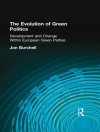Through a range of unconventional genres, representations of data, and dialogic, reflective narratives alongside more traditional academic genres, this book engages with contexts of decoloniality and border thinking in the Global South. It addresses processes of knowledge production and participation in the highly divided and unequal schooling and higher education system in South Africa, and highlights the consequences of the monolingual myth in post-colonial education, demonstrating opportunities for learning provided by translanguaging. It explores both embodied, multimodal and multilingual instances of knowledge-making in teaching and teacher education that take place outside but alongside formal classroom, lecture and seminar modes, and the positionality and learning experiences of teacher educators in science, literacy and language across the curriculum. The book is not only transdisciplinary but also captures the learning that takes place beyond the borders of disciplines and formal classroom spaces.
विषयसूची
Acknowledgements
Contributors
Prologue
Chapter 1. Carolyn Mc Kinney and Pam Christie: Introduction: Conversations with Teacher Educators in Coloniality
Part 1: De/coloniality in Schooling
Harry Garuba: Leaving Home at 10
Chapter 2. Xolisa Guzula: De/coloniality in South African Language in Education Policy: Resisting the Marginalisation of African Language Speaking Children
Chapter 3. Pinky Makoe: Navigating Hegemonic Knowledge and Ideologies at School: Children’s Oral Storytelling as Acts of Agency and Positioning
Chapter 4. Robyn Tyler: Identity Meshing in Learning Science Bilingually: Tales of a ‘Coconuty Nerd’
Part 2: Delinking from Coloniality in Teacher Education
Chapter 5. Kate Angier, Carolyn Mc Kinney and Catherine Kell: Visual Essay: Teaching and Learning beyond the Classroom: What Can We Learn from Participating in Struggle with our Students?
Chapter 6. Annemarie Hattingh: Learning Science from uma Gogo: The Value of Teaching Practice in Semi-rural School Contexts
Chapter 7. Rochelle Kapp: Engaging Deficit: Pre-service Teachers’ Reflections on Negotiation of Working-class Schools
Chapter 8. Soraya Abdulatief: Thirdspace Thinking: Expanding the Paradigm of Academic Literacies to Reposition Multilingual Pre-service Science Teachers
Chapter 9. Carolyn Mc Kinney: Delinking from Coloniality and Increasing Participation in Early Literacy Teacher Education
Chapter 10. Catherine Kell in conversation with Xolisa Guzula and Carolyn Mc Kinney: Reinventing Literacy: Literacy Teacher Education in Contexts of Coloniality
Part 3: Conversations with Teacher Educators in Brazil, Canada and Chile
Chapter 11. Cloris Porto Torquato: Teacher Education amid Centralising/Colonial and Decentralising/Decolonial Forces
Chapter 12. Vanessa Andreotti and Sharon Stein: Education for Depth: An Invitation to Engage with the Complexities and Challenges of Decolonizing Work
Chapter 13. Natalia Ávila Reyes: Transnational Connections in the Global South: A Reflection on this Book’s Reception
Index
लेखक के बारे में
Pam Christie is Emeritus Professor of Education, University of Cape Town, South Africa and Honorary Professor, The University of Queensland, Australia. She is the author of Decolonising Schooling in South Africa: the impossible dream? (2020, Routledge).












